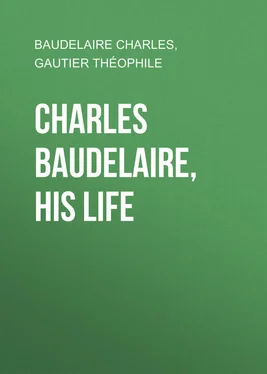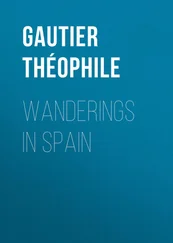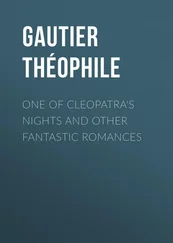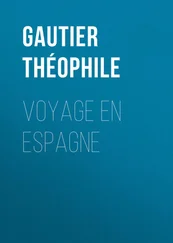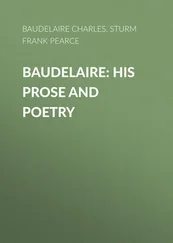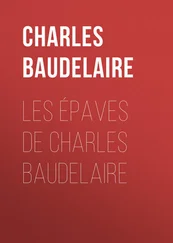Théophile Gautier - Charles Baudelaire, His Life
Здесь есть возможность читать онлайн «Théophile Gautier - Charles Baudelaire, His Life» — ознакомительный отрывок электронной книги совершенно бесплатно, а после прочтения отрывка купить полную версию. В некоторых случаях можно слушать аудио, скачать через торрент в формате fb2 и присутствует краткое содержание. Жанр: foreign_antique, foreign_prose, на английском языке. Описание произведения, (предисловие) а так же отзывы посетителей доступны на портале библиотеки ЛибКат.
- Название:Charles Baudelaire, His Life
- Автор:
- Жанр:
- Год:неизвестен
- ISBN:нет данных
- Рейтинг книги:4 / 5. Голосов: 1
-
Избранное:Добавить в избранное
- Отзывы:
-
Ваша оценка:
- 80
- 1
- 2
- 3
- 4
- 5
Charles Baudelaire, His Life: краткое содержание, описание и аннотация
Предлагаем к чтению аннотацию, описание, краткое содержание или предисловие (зависит от того, что написал сам автор книги «Charles Baudelaire, His Life»). Если вы не нашли необходимую информацию о книге — напишите в комментариях, мы постараемся отыскать её.
Charles Baudelaire, His Life — читать онлайн ознакомительный отрывок
Ниже представлен текст книги, разбитый по страницам. Система сохранения места последней прочитанной страницы, позволяет с удобством читать онлайн бесплатно книгу «Charles Baudelaire, His Life», без необходимости каждый раз заново искать на чём Вы остановились. Поставьте закладку, и сможете в любой момент перейти на страницу, на которой закончили чтение.
Интервал:
Закладка:
In his young days Baudelaire was in no way out of the ordinary, and neither did he gain many laurels at his college prize distributions. He even found the B.A. examination a great difficulty, and his degree was honorary. Troubled by abstract questions, this boy, so fine of spirit and keen of intelligence, appeared almost like an idiot. We have no intention of declaring this inaptitude as a sign of cleverness; but, under the eye of the pedagogue, often distrait and idle, or rather preoccupied, the real man is formed little by little, unperceived by masters or parents.
M. Baudelaire died, and his wife, Charles's mother, married General Aupick, who became Ambassador to Constantinople. Dissension soon arose in the family à propos of young Baudelaire's desire for a literary career. We think it wrong to reproach parents with the fears they manifest when the gift of poetry develops in their offspring. Alas! They are right. To what sad, precarious, and miserable existence does he vow himself – he who takes up a literary career? From that day he must consider himself cut off from human beings, active life; he no longer lives – he is the spectator of life. All sensation comes to him as motif for analysis. Involuntarily he develops two distinct personalities, and, lacking other subjects, one becomes the spy on the other. If he lack a corpse, he stretches himself on the slab of black marble and buries the scalpel deep in his own heart. And what desperate struggles must he endure with the Idea, that elusive Proteus, who takes all manner of forms to escape captivity, and who will only deliver his oracle when he has been forced to show himself in his true aspect! This Idea, when one holds it, frightened, trembling, vanquished, one must nourish, clothe, fold round in that robe so difficult to weave, to colour and to arrange in graceful curves. During this long-drawn-out task the nerves become irritable, the brain on fire, the sensibilities quickened, and then nervous disorder comes with all its odd anxieties, its unconscious hallucinations, its indefinable sufferings, its morbid capriciousness, its fantastic depravity, its infatuations and motiveless dislikes, its mad energy and nervous prostration, its searches for excitement and its disgust for all healthy nourishment.
We do not exaggerate the picture; but we have before us only the talented poets, crowned with glory, who have, at the last, succumbed on the breast of their ideal. What would it be if we went down into the Limbo where the shades of still-born children are wailing, like those abortive endeavours and larvæ of thought which can achieve neither wing nor form? Yes! Desire is not power, nor is Love possession!
Faith is not enough. Another gift is necessary.
In literature, as in religion, work without grace is futile.
Although they do not suspect this region of anguish, for, to know it really, it is necessary to go down oneself, not under the guidance of a Vergil or a Dante, but under that of a Lousteau, of a Lucien de Rubempré, parents instinctively display the perils and suffering of the artistic life in the endeavour to dissuade the children they love, and for for whom they desire one more happy and ordinarily human.
Once only since the earth has revolved round the sun have parents ardently wished to have a son's life dedicated to poetry. The child received the most brilliant literary education, and, with the irony of Fate, became Chapelain, the author of "La Pucelle"! and this, one might even say, was to play with sinister fortune!
To turn his stubborn ideas into another course, Baudelaire was made to travel. He was sent a great distance, embarking on a vessel, the captain of which took him to the Indian seas. He visited the Isles of Mauritius, Bourbon, Madagascar, Ceylon perhaps, and some parts of the "Isle of the Ganges"; but he would not, for all that, give up his intention of becoming a man of letters. They tried vainly to interest him in commerce, but a trade in cattle to feed Anglo-Indians on beefsteak had no attractions for him. All he retained of this voyage was a memory of great splendour which remained with him all his life. He gloried in a sky where brilliant constellations, unknown in Europe, were to be found; the magnificent vegetation with the exotic perfumes, the elegantly odd pagodas, the brown faces and the soft white draperies – all that in Nature was so warm, powerful, and full of colour.
In his verses he was frequently led from the mists and mud of Paris to the countries of light, azure, and perfume. Between the lines of the most sombre of his poems, a window is opened through which can be seen, instead of the black chimneys and smoky roofs, the blue Indian seas, or a beach of golden sand on which the slender figure of a Malabaraise, half naked, carrying an amphora on the head, is running. Without penetrating too deeply into the private life of the poet, one can imagine that it was during this voyage that Baudelaire fell in love with the "Venus noire," of whom he was a worshipper all his life.
When he returned from his distant travels he had just attained his majority; there was no longer any reason – not even financial, for he was rich for some time at least – to oppose Baudelaire's choice of a vocation; it was only strengthened by meeting with obstacles, and nothing would deter him.
Lodged in a little apartment under the roof of the same Hôtel Pimodan where later we met him, as has been related earlier in this introduction, he commenced that life of work, interrupted and resumed, of varied studies, of fruitful idleness, which is that of each man of letters seeking his particular field of labour. Baudelaire soon found his. He conceived something beyond romanticism – a land unexplored, a sort of rough and wild Kamtschatka; and it was at the extreme verge that he built for himself, as Sainte-Beuve, who thoroughly appreciated him, said, a kiosque of bizarre architecture.
Several of the poems which are to be found amongst the "Flowers of Evil" were already composed. Baudelaire, like all born poets, from the start possessed a form and style of which he was master; it was more accentuated and polished later, but still the same. Baudelaire has often been accused of studied bizarrerie, of affected and laboured originality, and especially of mannerisms. This is a point at which it is necessary to pause before going further. There are people who have naturally an affected manner. In them simplicity would be pure affectation, a sort of inverted mannerism. Long practice is necessary to be naturally simple. The circumvolutions of the brain twist themselves in such a manner that the ideas get entangled and confused and go up in spirals instead of following straight lines. The most complicated, subtle, and intense thoughts are those which present themselves first. They see things from a peculiar angle which alters the aspect and perspective. All fancies, the most odd, unusual, and fantastically distant from the subject treated of, strike them chiefly, and they know how to draw them into their woof by mysterious threads.
Baudelaire had a brain like this, and where the critic has tried to see labour, effort, excess, there is only the free and easy manifestation of individuality. These poems, of a savour so exquisitely strange, cost him no more than any badly rhymed commonplace.
Baudelaire, always possessed of great admiration for the old masters, never felt it incumbent upon him to take them for models; they had had the good fortune to arrive in the early days of the world, at the dawn, so to speak, of humanity, when nothing had been expressed yet, and each form, each image, each sentiment, had the charm of virginal novelty. The great commonplaces which form the foundation of human thought were then in all their glory and sufficed for simple geniuses, speaking to simple people.
But, from force of repetition, these general subjects of verse were used up like money which, from continual circulation, has lost its imprint; and, besides, Life had become more complex, fuller of originality, and could no longer be represented in the artificial spirit of another age.
Читать дальшеИнтервал:
Закладка:
Похожие книги на «Charles Baudelaire, His Life»
Представляем Вашему вниманию похожие книги на «Charles Baudelaire, His Life» списком для выбора. Мы отобрали схожую по названию и смыслу литературу в надежде предоставить читателям больше вариантов отыскать новые, интересные, ещё непрочитанные произведения.
Обсуждение, отзывы о книге «Charles Baudelaire, His Life» и просто собственные мнения читателей. Оставьте ваши комментарии, напишите, что Вы думаете о произведении, его смысле или главных героях. Укажите что конкретно понравилось, а что нет, и почему Вы так считаете.
